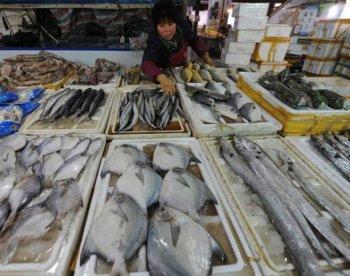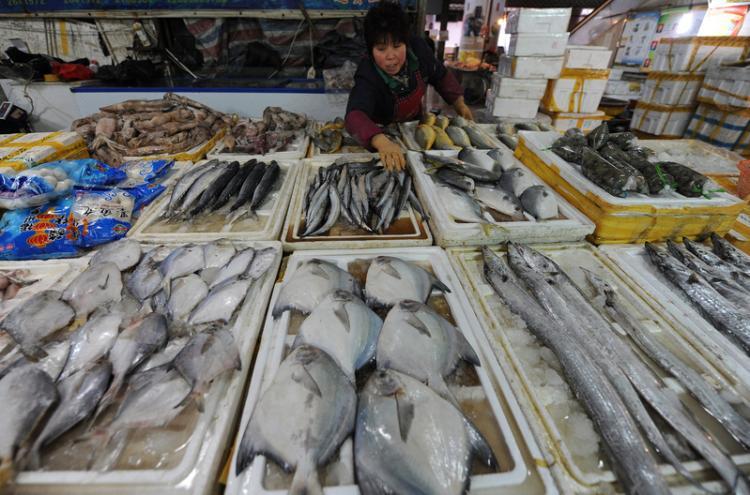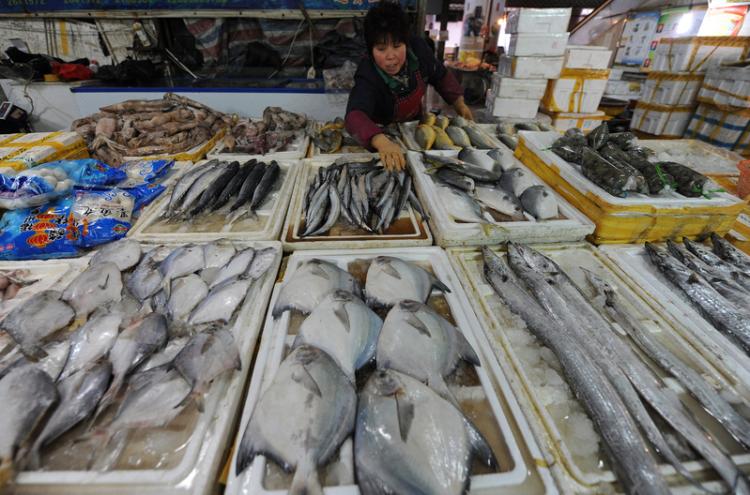Chinese Fish Drowning in Antibiotics
To boost yields fish farmers in China dump antibiotics and fertilizers into reservoirs, creating long term environmental problems.

A fish stall in Hefei City. Overuse of antibiotics and fertilizer among farmers is common in China. STR/Getty Images
|Updated:

